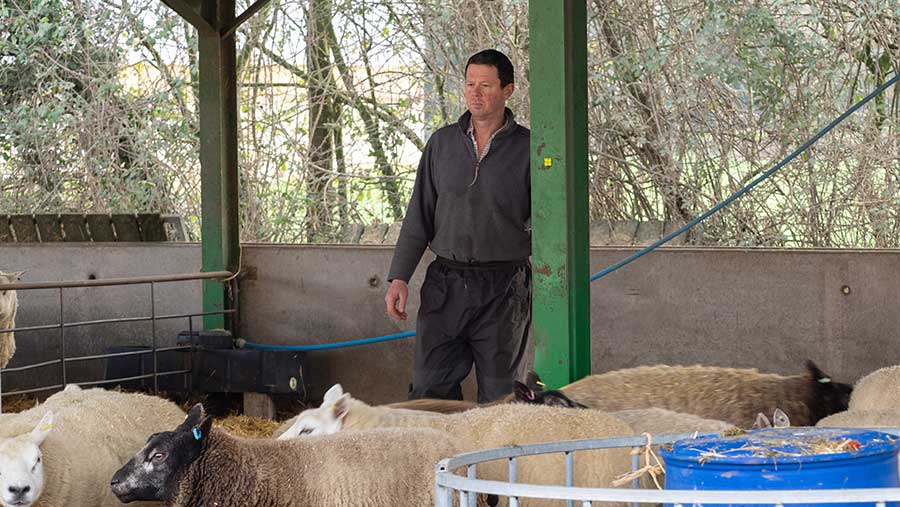Farmer Focus: People might question 200,000gns for a lamb
 © Kathy Horniblow
© Kathy Horniblow Pedigree sheep breeding is always interesting. History is littered with people spending lots of money to join a particular club without success.
The public might question 200,000gns for a ram lamb at the top of the breeding pyramid.
At the bottom of the pyramid many rams sell for prices very low down the money scale and prime lambs languish near or below cost of production.
Expensive tups have become more affordable with semen sales and AI/ET work, which multiply genetics quickly. This is helped along by farmers with multiple income streams.
The only tup I had marked at Worcester last week went way over my budget so for now a secondary lamb has to do.
See also: Lanark Texel lamb makes second highest price ever
Disappointingly, breeding that has proven results in the RamCompare project did not feature in the high prices, which does not bode well for the profitable future of the sheep industry.
I’m sure that if the same results had been achieved in the pig or poultry industry, the genetics would be well sought after.
We have about half the commercial ewes in good condition on minimal grazing to hold them pre-tupping, although unfortunately a couple thought there’d be more grass in heaven.
Getting all groups in the right condition, in the right place, at the right time is challenging the number of fields and time management.
We got some really good winter barley straw dry and in the shed.
Unfortunately two fields of spring barley yielded a really light crop and we are now waiting for some spring oat straw to be comfortable for winter.
The current political rubbish does not help any planning. Are we going into survival mode?
Would the most financially sensible thing to do, be throw in the towel, sell everything, have a rest and see how long before the country becomes hungry?
Being fat and wealthy enough to waste billions of pounds of food every year it might take them a while.
The lack of balanced education among the vegan/ecological group could result in a very different landscape.
James and Belinda Kimber farm 850 commercial and pedigree sheep and 30 pedigree Simmental and Charolais cattle in Wiltshire across 95ha (45ha owned) with the help of their children, Josh, Izzy and Richard. James also runs a foot-trimming business and Belinda has a B&B.
